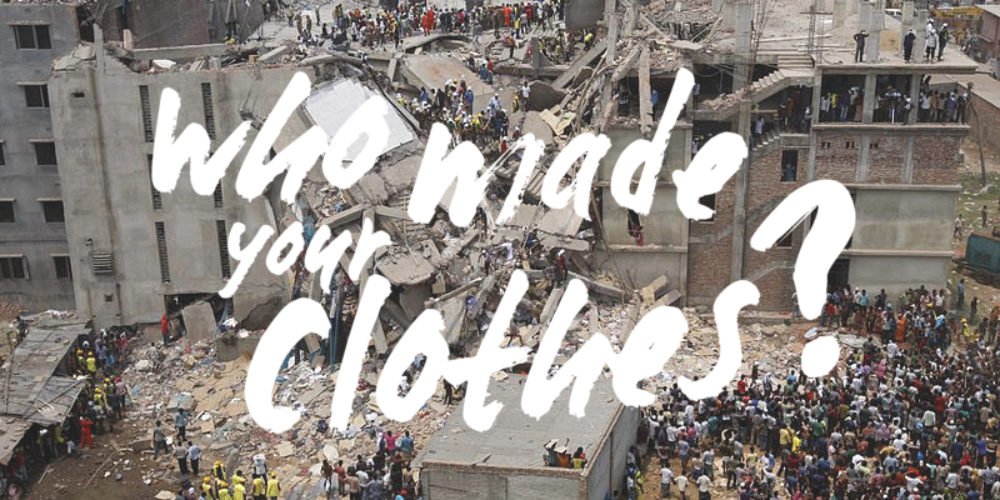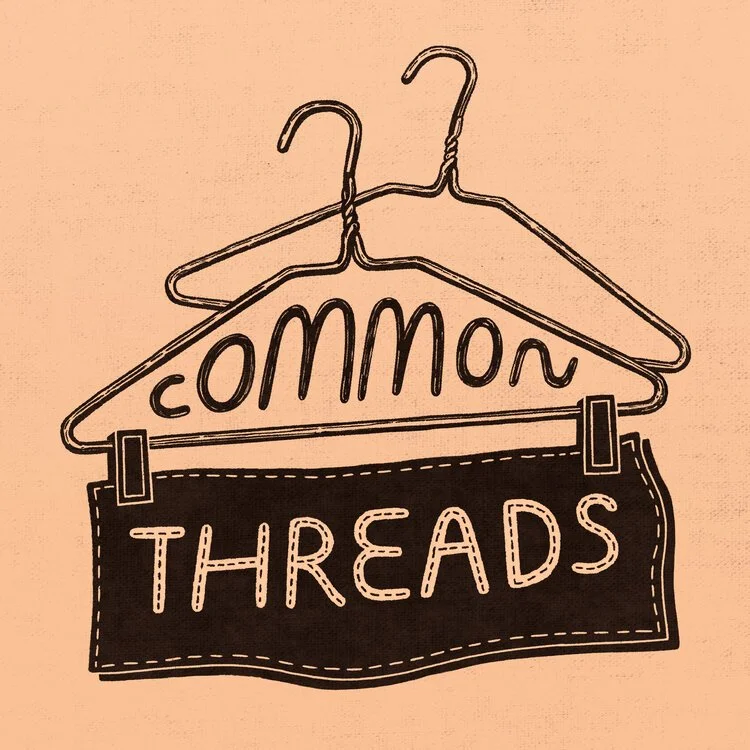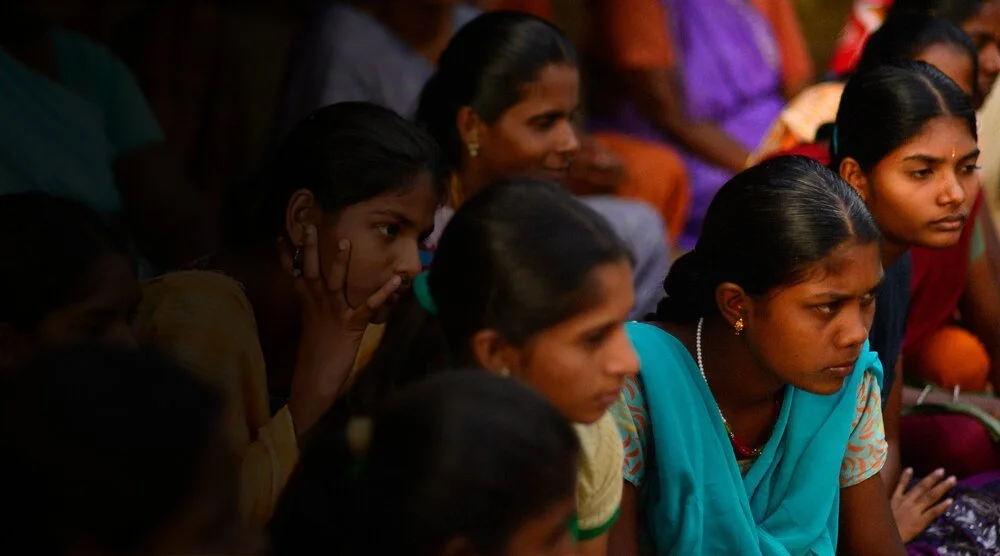Fashion Revolution campaigns for a fair, safe, transparent and accountable fashion industry all year round, but the annual Fashion Revolution Week is a calendar moment. This year, it runs from Monday 18th April to Sunday 24th April and the theme is Money Fashion Power.
As Ruth shares in the intro: “The mainstream fashion industry is built on the exploitation of people and the planet, with wealth and power concentrated in the hands of a few. Basically, it’s time to reimagine the values at the heart of the fashion system and scrutinise what it is we’re really paying for.”
EP 164 FEATURES WORKERS’ RIGHTS CAMPAIGNER INEKE ZELDENRUST
You probably already know that the fashion industry has problems! Issues for garment workers range from low pay and unsafe working conditions through gender discrimination, bullying and intimidation, to a lack of social security or social safety nets when things go wrong. As they did - spectacularly - for so many during the pandemic.
What’s the answer? Improve transparency and uphold rights, pay a living wage and ensure workers have a seat at the table while all this is discussed. In this enlightening conversation, Clare and her guest Ineke Zeldunrust, Coordinator of Clean Clothes Campaign, unpack how this might happen - and why it must.
NOTES
STUDY WITH US Our Sustainable Fashion 101. course includes deep dives in living wages.
RUTH MACGILP is Fashion Revolution’s communications manager in the UK. A writer and ethical fashion podcast, she also has her own sustainable fashion podcast - she hosts Common Threads with sustainable stylist Alice Cruickshank.
INEKE ZELDENRUST is a seasoned organiser in the garment sector. In her role as Coordinator at the International Office of the Clean Clothes Campaign in Amsterdam, she leads the lobby and advocacy work, focusing on corporate accountability, safety and living wages. She was one of the key architects of the Bangladesh Accord, on whose board she serves as witness signatory. She also worked intensively on the campaigns for the victims of the Rana Plaza Building collapse, the Tazreen and the Baldia fires, and she negotiated agreements that collectively delivered over 30 million dollar to the victims.
CLEAN CLOTHES CAMPAIGN Founded in 1989 in The Netherlands, today CCC is a global network of over 235 organisations operating in over 45 countries. They say: “We connect actors across the garment and sportswear industry, linking home-based worker organisations, grass-roots unions, women's organisations and trade unions, to labour rights and feminist organisations, CSOs and activists in both garment-producing and consumer market countries.”
Here’s the “Fashion’s Problems” page on their website. Look out also for their “Fashion Checker” - an online app that shows you what your favourite brands pay their workers.
FASHION REVOLUTION is a non-profit organisation that brings together a global movement of people campaigning for a fashion industry that conserves and restores the environment and values people over growth and profit.
image via Good Clothes Fair Pay
GOOD CLOTHES FAIR PAY is a new campaign demanding living wage legislation across the garment, textile and footwear sector. They’re aiming to collect 1 million signatures from EU citizens to push for legislation that requires companies selling their products in the EU to conduct living wage due diligence in their global supply chains.
If you’re outside of the EU, you can still get on board by helping spread the word, and push for living wages in the fashion supply chain. Connect on Instagram @goodclothesfairpay and subscribe to the newsletter at goodclothesfairpay.eu
“FOR TOO LONG, FASHION BRANDS HAVE PROMISED TO DO THE RIGHT THING. THEY HAVEN’T. WE CANNOT WAIT FOR VOLUNTARY MEASURES FROM INDIVIDUAL BRANDS. THE INDUSTRY NEEDS TO BE REGULATED AND HELD ACCOUNTABLE.” Good Clothes, Fair Pay
THE ISSUE “Chasing ‘the cheap needle around the planet’, retailers have sought low wages, poor labour standards and lax environmental regulations in a bid to boost profit. While such conditions provide factories with a competitive advantage, this comes as a direct result of the socio-economic disadvantages faced by women workers. The informal nature of women’s work within the garment sector also means that work is defined by precarity, with a lack of social welfare provisions and below sustenance-level pay.” Read the rest here.
HOW DID THE PANDEMIC AFFECT WORKERS? Says CCC: “The Pandemic is touching lives all over the planet, but is hitting garment workers in particular. They risk their health working in crowded factories without sufficient protection and risk their livelihood if they are sent home without pay. Brands and retailers need to act to protect the workers who have enabled their profits in the past.”
Ineke adds: “The problem has been that workers didn’t get paid for the money they lost during the shutdowns…. they are in a much more precarious position than they were before,” says Ineke. “Between March 2020 - March 2021, $12 billion has not been paid in wages and severance.”
Here’s Episode 115 on garment workers during the pandemic. Listen to the interview Clare mentions on modern slavery - Episode 53 with Lola Young. Episodes. Also a must for a revisit - Episode 5 with Kalpona Akter.
PAKISTAN The Sindh province is one of Pakistan's main garment-producing hubs. On 9th July 2021, the Sindh provincial government announced a 40% increase to the minimum wage, raising it from 17,000 rupees to 25,000 rupees (approx. €124 EUR).
Find the UN HUMAN RIGHTS GUIDELINES here.
TRANSPARENCY As Ineke says won’t solve the fashion industry’s problems, in and of itself but it is a necessary first step to shine a light on the issues that need addressing. You can’t change what you can’t see. The Open Apparel Registry “exists to improve human rights and environmental conditions in and around factories and facilities by opening up supply chain data as a free, public good. When everyone working in global supply chains enjoys equal access to quality, open-licensed data, it leads to more sustainable and equitable outcomes for the most vulnerable communities affected by the apparel sector.” More here.
A LIVING WAGE is possible. “Brands can afford it,” says Ineke. “I think in the end, it’s a question of power. Institutions won’t do it, until we build u the power. The long term solution is to regulate. The shorter term solution - how do you get to regulation - is for everybody to ask these CEOs in person, ‘Where are you now?Why not do it? You can do it. Come to the table, sign an agreement.’”
ROLE OF UNIONS Unionisation should be a free choice, as Ineke points out. Unions play a key role in collective bargaining. She says wages should be “RING FENCED” so brands cant compete for the lowest. A ring-fence is a virtual barrier that segregates part of an individual's or company's financial assets from the rest.









